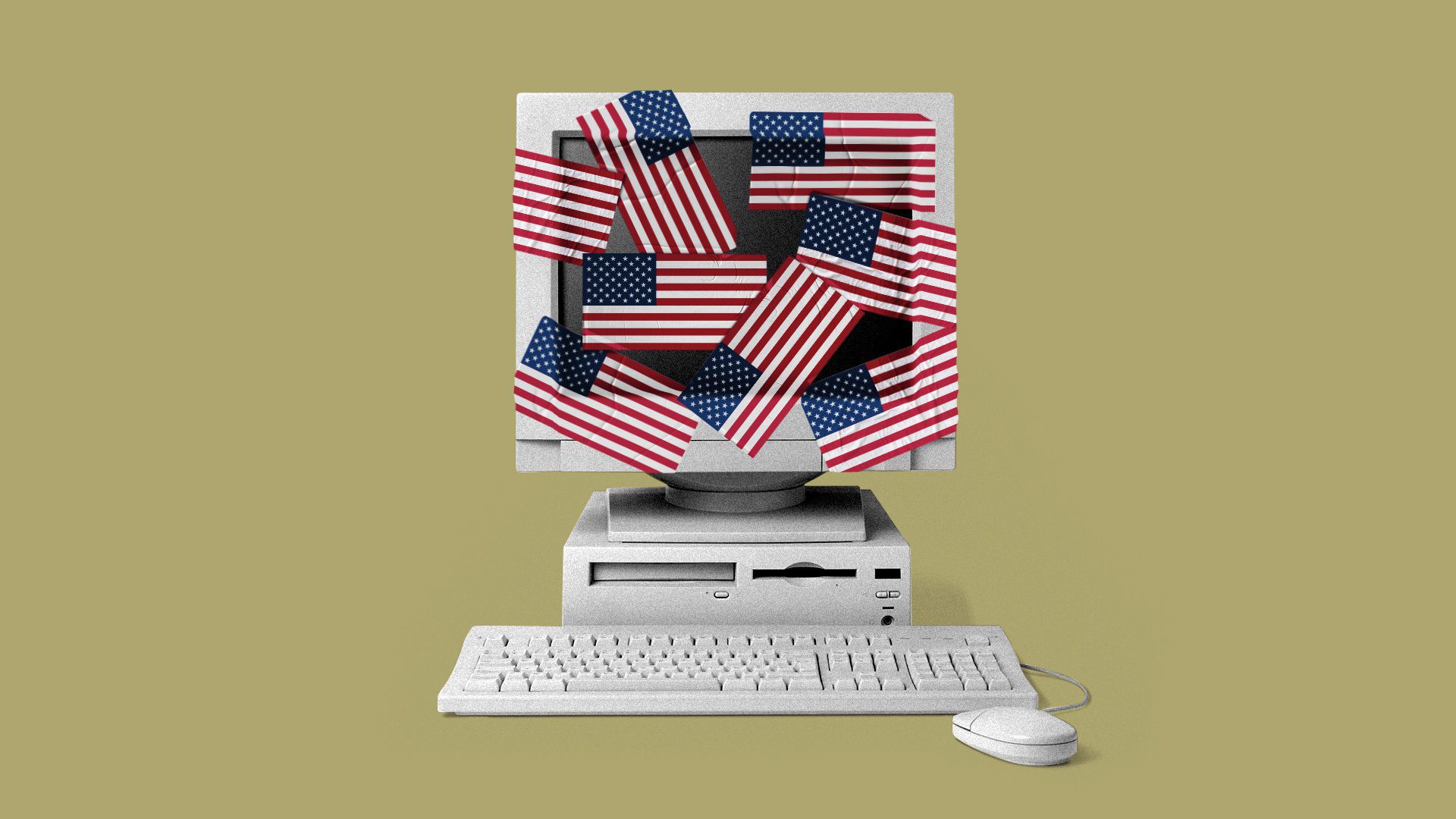The government was little help. The nightly news was one of the few sources which anyone had for the state of affairs in the country. Sitting stoically against the flag, his over-bleached hair and tanned skin seemingly ghastly, President Kaufman made his nightly announcements.
The government was little help. The nightly news was one of the few sources which anyone had for the state of affairs in the country. Sitting stoically against the flag, his over-bleached hair and tanned skin seemingly ghastly, President Kaufman made his nightly announcements.
Just the night before, he implored, “I know you all feel alone now, and so do we. Public health officials encourage each of you to make contact with your family and loved ones if you live alone — through the telephone, through computers if you have access to local networks. Remember that you are not alone.”
The partisanship in the current government was ever-increasing, certainly exacerbated by the pandemic. Maddie saw it in the views of the differing news stations — the ways in which stations like CNN reported the number of COVID-19 deaths versus that of Fox News. The divisions were endless. President Kaufman is insistent upon the ability for the public to overcome the virus. He continuously offers veiled accusations against those in differing parties, particularly those who insist upon the deadliness of COVID. The President’s latest news that he would run for a third term epitomized the division, the hatred that people were feeling.
It’s the morning of the election — and the country had to decide between the establishment and a newer, reformed way of doing things.
Maddie sits before her computer — a PC connected to a modem in the wall — while it takes a minute or two to come up with its primary screen.
The Screen reads: Hello, Maddie.
Maddie types the words: Hello. Want to play?
Yes.
Initiating Solitaire, Level 51.
Maddie’s computer connects to a local network — allowing her to chat with a host of other individuals while she plays. Although the computer only allows her to chat with local computers, it’s a real lifeline to her outside of the home throughout the pandemic. Maddie’s mother, ever-cautious, takes social distancing extremely seriously. She even fears going to the grocery store, at times. When they do have to venture outside, her mother practically sprays them all down with an industrial hose before any of them interact.
Maddie sat before the television each night with her mother and father, in an attempt to make sense of the world outside of their front door — a world which felt increasingly vast.
If only they had some way of organizing, some way of coming together in a real sense. It seems what people really needed was a common communication system, a way in which they could show their anguish towards the whole system. There were rumors, of course, of the uprisings beginning in the hearts of many people. The need for change — for more than a man with orange skin sitting before a flag which no longer seemed to symbolize anything other than inequity.

There must be some world out there. Sometimes, when Maddie closes her eyes, she can imagine that world. A world where communications swells across borders — where there is an endless ability for communication, a science which is ruthless in its exactitude, a love which is abounding among individuals and their governments, a sense of knowledge which values science and understanding above all else. If she shuts her eyes tight enough, she might just see it. Sometimes, when she stares into the depths of her computer — just when she has started a sudoku game or she receives a chat from a anonymous user who has a particularly interesting name (“yourmom2456” was a particular favorite— she feels the sparkle of that goodness in herself again.
Stare hard enough into the screen and maybe you’ll see it — the potential for connection. She could almost squint and see them: black lines stretching from her computer to another one, from her mind to the next. She wished humans were like trees — having deep roots into the soil. How she wished that those lines were real.

Her mother called up to her, interrupting her game of solitaire. “Sweetheart, would you come down here for the news?”
Sighing to herself, she shut down her browser, unplugged the modem, and made her way downstairs to hear the news.